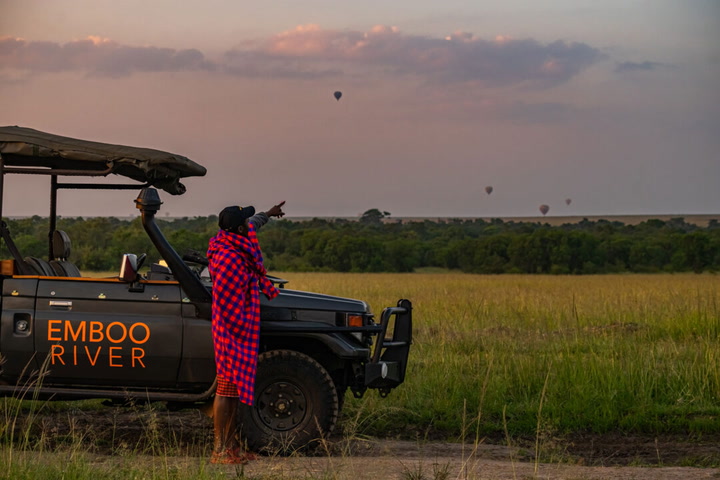Could Electric Vehicles Be the Future of Safaris in Africa?
If you’ve ever seen a cheetah stalk its prey, you know that even for the fastest animal on the plain, the hunt is an exercise in patience and silence. If you’re lucky enough to be the one stalking a big cat while on safari, you understand that pursuit demands the same quiet stamina — until the noiselessness of the prowl is disrupted by the diesel roar of your open-air Land Cruiser.
Enter the electric safari vehicle, a green innovation that could revolutionize the Kenya safari experience — and help preserve the fragile ecosystems that attract nearly two million tourists to the country each year.
The Rise of Electric Safari Vehicles
Electric safari cars are now available at a select number of camps in Kenya. These automobiles promise to protect the environment while enhancing the safari experience by operating in near-total silence. As of early 2021, Nairobi-based company Opibus has converted 10 Land Cruiser safari vehicles from diesel to electric.
According to Albin Wilson of Opibus, “We deploy solar [power] and convert vehicles, so that the entire ecosystem creates an off-grid safari system that is independent of its surroundings. Sustainability-wise, it’s huge.” Once a safari vehicle is converted from diesel to electric, it is charged via a solar panel station, eliminating the need for fuel that poses environmental risks.
The Benefits of Electric Safari Vehicles

Converting existing vehicles rather than manufacturing new electric ones is also a cost-effective strategy. “You can utilize your current fleet while enhancing it and extending the life span of existing vehicles,” Wilson explains. This approach reduces landfill waste and makes economic and environmental sense.
A Quiet and Intimate Safari Experience
In terms of safari dynamics, an electric safari vehicle glides quietly compared to the roaring traditional models. As the 4×4 traverses the Maasai Mara, the sound you hear is the wish-swish of grass against the vehicle’s metal sides, allowing for closer encounters with wildlife. The silence is so profound that even a foraging cheetah remains unfazed.
William Partois Ole Santian, manager and co-owner of Emboo River Camp in the Maasai Mara, states, “It’s super cool, going closer to game, with no noise, no emissions — it’s just amazing. This is exactly what the Mara needs now: People who are eco-minded and sensitive about their footprints in the wild.”

Shaping a Sustainable Future
With extensive experience in various roles in tourism, Partois Ole Santian recognizes the duality of tourism: it can both support the local economy and threaten the environment. “There are more camps now than before,” he says. “There’s a lot of change, more land use, and more human activities within the Mara.”
As he transitioned from night guard to safari guide to camp owner, he focused on creating a more sustainable tourism model. He rejected the traditional emphasis on the Big Five animals and introduced a broader Big 20 concept, encompassing a variety of lesser-known wildlife.
Partois Ole Santian and his partners have eliminated single-use products at their camp and strive for complete eco-friendliness, right down to the cleaning supplies used.
Moreover, their ambition includes a pioneering all-electric fleet powered by solar energy, setting a precedent within the safari industry.
A Vision for the Future
As electric safari vehicles operate alongside traditional diesel ones, they continually attract attention from tourists and photographers alike, eager to see the first electric safari vehicle in the Maasai Mara. Witnessing the beauty of the land while maintaining an eco-friendly approach creates an unmatched experience.

Emboo River Camp leads the way, but it is not alone. Other camps in the Maasai Mara are gradually transitioning their fleets to electric vehicles. Lewa Wilderness, another key player, was the first to integrate electric vehicles into their offerings, providing all-electric safari experiences.
Beyond safari innovations, Opibus aims to revolutionize urban transport as well, offering electric motorbikes and matatus to enhance public transport across Kenya, while fostering local employment opportunities.
Partois Ole Santian aspires for a broader shift in the region. “Being local and coming from here, it’s fantastic to demonstrate that this is achievable,” he remarks. “The Mara has a light at the end of the tunnel. One day, we’ll return to how it was 50 or 60 years ago.”





